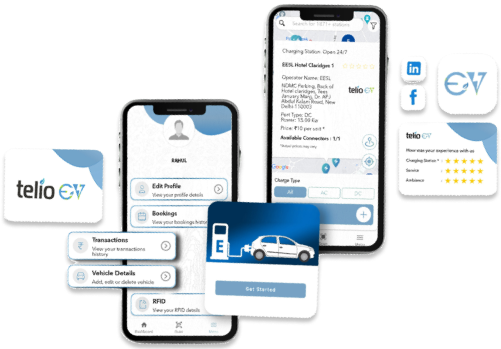Enhancing Electric Vehicle Charging with Advanced Management Software

The quick adoption of electric vehicles (EVs) has actually necessitated the development of efficient and user-friendly charging solutions. Central to this evolution are Electric Vehicle Charging Management Software (EV CMS) and EV Charging Apps, which streamline the charging procedure for both operators and users.
Understanding EV Charging Management Software
EV Charging Management Software serves as a comprehensive platform that makes it possible for Charge Point Operators (CPOs) and other stakeholders to monitor, manage, and optimize EV charging stations. Key functionalities consist of real-time tracking of charging stations, user authentication, payment processing, and energy management. By incorporating these features, the software ensures efficient operation and boosts the user experience.
Key Features of EV Charging Management Software
1. Real-Time Monitoring and Control: Operators can manage the status of charging stations, track energy usage, and address issues promptly.
2. User Authentication and Access Control: The software manages user gain access to, making sure that only authorized individuals can utilize the charging facilities.
3. Payment Processing: It assists in smooth transactions, supporting various payment approaches to accommodate diverse user choices.
4. Energy Management: By optimizing energy circulation, the software decreases operational expenses and supports grid stability.
5. Reporting and Analytics: Comprehensive information analysis aids in notified decision-making and tactical planning for network growth.
The Role of EV Charging Apps
EV Charging Apps Best EV Charging App are developed to provide EV owners with hassle-free access to charging infrastructure. These applications offer functions such as locating nearby charging stations, real-time accessibility updates, navigation assistance, and remote tracking of charging sessions. By improving accessibility and user engagement, these apps play a vital role in promoting the adoption of electric vehicles.
Integration with Open Charge Point Interface (OCPI)
The Open Charge Point Interface (OCPI) is a standardized procedure that facilitates interoperability in between different EV charging networks. Combination with OCPI allows for smooth roaming, enabling users to gain access to multiple charging networks with a single account. This interoperability boosts user convenience and broadens the accessibility of charging facilities.
Benefits of Implementing Advanced Charging Solutions
- Enhanced User Experience: User-friendly user interfaces and dependable services increase consumer satisfaction and commitment.
- Operational Efficiency: Automation and real-time monitoring decrease manual intervention, decreasing operational expenses.
- Scalability: Advanced software solutions support the expansion of charging networks to satisfy growing need.
- Revenue Generation: Flexible pricing models and effective payment processing open new revenue streams for operators.
Conclusion
The integration of EV Charging Management Software and user-centric EV Charging Apps is essential in advancing the electric vehicle community. These technologies not only enhance operations for service providers but also substantially enhance the charging experience for users. As the EV market continues to grow, the adoption of such sophisticated solutions will contribute in fulfilling the increasing demand for effective and available charging infrastructure.